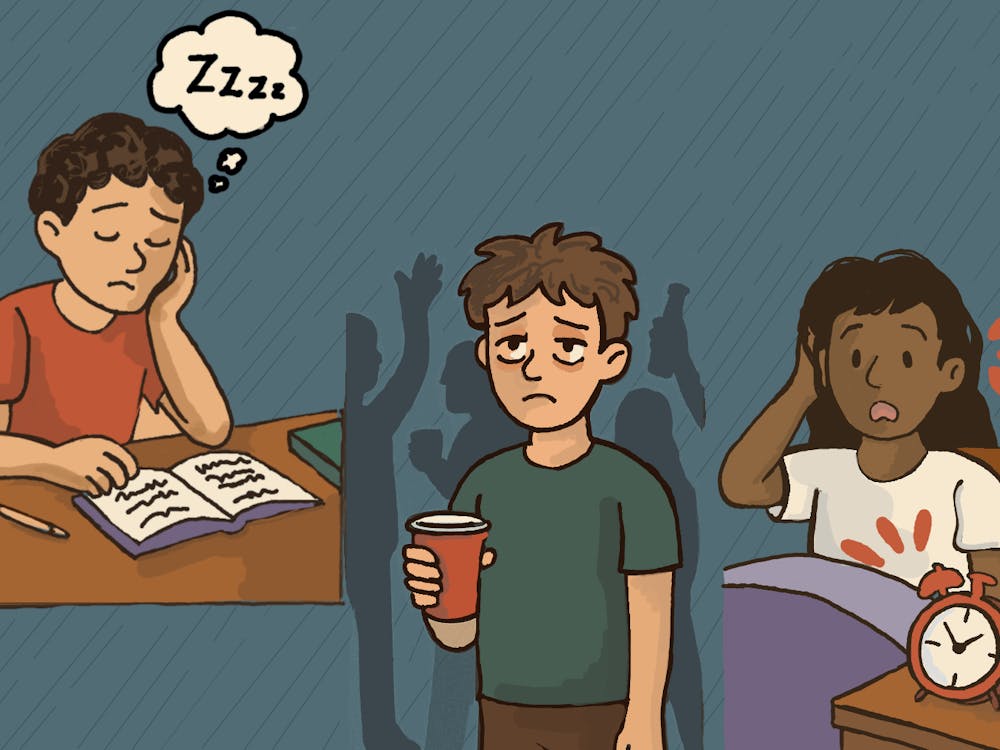As a child, dreams were a game for me. I would wake up and immediately try to tell someone in the house what happened, only to find 30 seconds into my description that I was making up nonsense to make up for what I couldn’t remember.
I was enthralled by dreams. Each spring, my elementary school hosted an annual book fair. The week prior, our teachers distributed book catalogues to 30 antsy children, fully aware that all attention for the next hour would be devoted to creating a wishlist. I perfectly remember showing my parents the catalogue one night, pointing to the item I had circled in sharpie three times — “The Dream Decoder.”
“The Dream Decoder” — a journal for recording dreams — had certainly caught my attention. Though I had previously been convinced I was the master of my dreams by pairing symbols and colors with what I assumed they represented, I realized then I was not the expert I fancied. I excitedly purchased the book.
I recorded my dreams in the journal for four weeks, and although nothing changed about them, I felt I exercised more control over my dreams’ meanings. In reality, “The Dream Decoder” was just an example of marketing genius that targeted strange children like me. For all interested parties, I fell for the same gimmick and purchased the company’s “Spy Kit” the following year.
My interest in dreams persists, however. There is a factoid floating around the Internet which claims humans can have an estimated five dreams per night, but often can only remember about five percent of what actually happened. Each night we go to sleep and without putting in any effort, we weave a complex web of histories and then — as if by a magic spell — the images that seemed so real in our heads vanish the moment we open our eyes. Having taken no psychology classes and knowing little about science in general, I am constantly stunned by this!
I am most interested in how dreams affect us the following day. Though the story of a dream is gone in the morning, the feeling lingers and hangs with you throughout the day. Often they feel so real that when we get out of bed and jump right back into the daily grind, it takes a moment to distinguish reality from dream.
Sometimes this is good — I gladly welcome images of beautiful men and tropical beaches. However, the nightmares have a stronger grasp and can loop on repeat unless you immediately shut them out. I’ve tumbled out of bed several times in the early morning to make sure everyone in the house is still alive and no one was turned into a family of elephant seals.
Moreover, waking up from a nightmare today is equally as frightening as it was in our adolescence. You would hope we’d grow out of this “childish habit” until we realize it’s really just human nature. The monsters are still there — they simply change form and become a bit more menacing. Without our parents’ bed to run to and hide in, we are left to our own devices to shake the fear away and go back to sleep.
Ultimately, I think what makes dreams so fascinating is that they can exist outside of the realm of sleep to affect our waking hours. The dreams that linger into the next day latch on and don’t fizzle away. And even though the pseudo-science offered by “The Dream Decoder” may not hold up, many of us will always feel compelled to investigate the meaning behind each story that plays out as we sleep.
Allie’s column runs biweekly Thursdays. She can be reached at a.lank@cavalierdaily.com.







